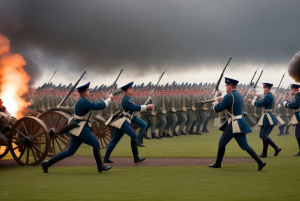By Larry Billinger
Tonight I received a note from my daughter’s 6th-grade teacher about enhancing our children’s reading habits at home, I felt inspired. Every night, my daughters and I read the Bible together. To make our sessions more interactive, I’m going to begin integrating the school’s reading techniques into our Bible study. By crafting questions based on direct text understanding, the author’s purpose, and personal connections, I’m hoping to deepen our discussions about the Bible, starting with the Book of Acts. Some questions even challenge me! I’m eager to share this journey with you all and encourage you to think about how you can blend classroom techniques with your own family routines.
Acts 1:
- Right There: Who was chosen to replace Judas as one of the twelve apostles?
- Author’s Purpose: Why do you think the author started the book by referencing the Ascension of Jesus?
- Connections: Can you recall a time when you had to wait for something important, similar to the disciples waiting for the Holy Spirit?
Acts 2:
- Right There: What happened to the apostles on the day of Pentecost?
- Author’s Purpose: Why might the author have emphasized the various languages spoken when the Holy Spirit came?
- Connections: How can the unity of the early church inspire unity in today’s world?
Acts 3:
- Right There: What miracle did Peter and John perform at the temple gate?
- Author’s Purpose: Why did the author include Peter’s speech after the healing of the lame man?
- Connections: Have you ever witnessed an act of kindness that had a significant impact on a community?
Acts 4:
- Right There: Who were the two main apostles brought before the Sanhedrin?
- Author’s Purpose: What message might the author be conveying by detailing the threats against the apostles?
- Connections: How do the apostles’ courage remind you of individuals who stand up for their beliefs today?
Acts 5:
- Right There: What happened to Ananias and Sapphira?
- Author’s Purpose: Why might the author have included the story of Ananias and Sapphira in the context of the early church’s growth?
- Connections: Can you think of a situation where honesty was crucial to maintain trust within a community?
Acts 6:
- Right There: Why were the seven men, including Stephen, chosen by the early church?
- Author’s Purpose: How does this chapter highlight the importance of delegation in leadership?
- Connections: Have you ever seen or been part of a group that adapted its structure to better serve its members?
Acts 7:
- Right There: What major event at the end of this chapter led to a significant shift in the early church?
- Author’s Purpose: Why do you think Stephen’s speech, recounting Israel’s history, was included before detailing his martyrdom?
- Connections: How does Stephen’s faith under persecution inspire you or remind you of others who faced adversity?
Acts 8:
- Right There: Who was the primary person spreading the Gospel in Samaria?
- Author’s Purpose: What’s the significance of the Ethiopian eunuch’s conversion to the growth of early Christianity?
- Connections: Have you ever heard a story of someone unexpectedly finding faith during their journey?
Acts 9:
- Right There: Describe Saul’s experience on the road to Damascus.
- Author’s Purpose: Why was Ananias’s role crucial to Saul’s transformation?
- Connections: How does Saul’s transformation remind you of stories where individuals drastically change their beliefs or perspectives?
Acts 10:
- Right There: Who was the first Gentile to be baptized, as recorded in this chapter?
- Author’s Purpose: How does Cornelius’s conversion challenge the traditional Jewish views of the early Christian community?
- Connections: Can you recall a moment when you or someone you know had to confront and change long-held beliefs?
Acts 11:
- Right There: Why did the apostles and believers in Judea initially criticize Peter?
- Author’s Purpose: How does the author convey the significance of the Gospel being spread to non-Jews?
- Connections: Can you think of a time when sharing a personal experience helped others understand a larger issue or change their perspective?
Acts 12:
- Right There: What happened to the apostle James at the beginning of this chapter?
- Author’s Purpose: In recounting Peter’s miraculous escape from prison, what does the author suggest about the power of collective prayer?
- Connections: Have you ever been a part of or heard about a community coming together in prayer during challenging times? How did that experience resonate with this chapter?
Acts 13:
- Right There: Who were the prophets and teachers in Antioch at the beginning of this chapter?
- Author’s Purpose: Why might the author have chosen to include the story of Elymas the sorcerer?
- Connections: Can you think of a time in your life or in the world where someone tried to mislead others, similar to Elymas?
Acts 14:
- Right There: What did the people of Lystra think Paul and Barnabas were?
- Author’s Purpose: Why do you think the author showed both the positive and negative reactions of the people in the cities Paul and Barnabas visited?
- Connections: Have you ever experienced or heard of a situation where someone was first praised and then criticized, similar to Paul and Barnabas?
Acts 15:
- Right There: What issue caused disagreement among the believers in Antioch?
- Author’s Purpose: Why did the author focus on the Jerusalem Council and their decision about Gentile believers?
- Connections: Can you think of a time when a group had to come together to make a decision for the greater good?
Acts 16:
- Right There: Who did Paul meet in Philippi that became a believer?
- Author’s Purpose: What message might the author be trying to convey by sharing the story of the jailer’s conversion?
- Connections: Have you ever heard of or experienced an event where someone’s perspective changed suddenly, similar to the jailer?
Acts 17:
- Right There: How did the Bereans respond to Paul’s teachings compared to the Thessalonians?
- Author’s Purpose: Why did the author describe Paul’s attempt to connect with the Athenians using their own altar?
- Connections: Have you ever seen or experienced a situation where someone used a familiar object or concept to explain something new?
Acts 18:
- Right There: Who were Priscilla and Aquila, and how did they help Paul?
- Author’s Purpose: What might be the significance of Paul staying in Corinth for a year and a half?
- Connections: How does Paul’s dedication to teaching remind you of other leaders, past or present?
Acts 19:
- Right There: Why were some of the people in Ephesus upset with Paul and his companions?
- Author’s Purpose: How does the story of the seven sons of Sceva emphasize the power of Jesus’ name?
- Connections: Can you think of an instance where someone tried to use a powerful name or title without truly understanding it?
Acts 20:
- Right There: What event occurred in Troas while Paul was speaking?
- Author’s Purpose: Why did the author include Paul’s farewell speech to the Ephesian elders?
- Connections: Have you ever had to say goodbye, knowing you might not see someone again, like Paul did?
Acts 21:
- Right There: What prophecy was made about Paul by the prophet Agabus?
- Author’s Purpose: Why might the author have detailed Paul’s interactions with the Jewish believers in Jerusalem?
- Connections: Have you ever faced a situation where staying true to your beliefs led to misunderstandings or conflicts?
Acts 22:
- Right There: In front of which group did Paul give his testimony in this chapter?
- Author’s Purpose: How does recounting Paul’s conversion story again serve the broader narrative of Acts?
- Connections: How does Paul’s dedication to sharing his personal journey inspire you or remind you of individuals who share their personal stories to make a difference?
Acts 23:
- Right There: What divided the Sanhedrin when they were interrogating Paul?
- Author’s Purpose: Why do you think the author chose to highlight the internal disputes of the Sanhedrin?
- Connections: Have you seen instances where divisions within a group affected the outcome of a larger issue?
Acts 24:
- Right There: Who was the governor before whom Paul defended himself in this chapter?
- Author’s Purpose: How does Tertullus’s speech against Paul emphasize the challenges early Christians faced?
- Connections: Can you think of a situation where someone was falsely accused, and how they handled the situation?
Acts 25:
- Right There: Who succeeded Felix and to whom did Paul appeal his case?
- Author’s Purpose: What does the continued emphasis on Paul’s trials reveal about the legal and political challenges of the early church?
- Connections: How does the concept of standing up for one’s rights, as Paul did, resonate in today’s society?
Acts 26:
- Right There: To whom did Paul present his defense in this chapter?
- Author’s Purpose: By detailing Paul’s defense, what does the author convey about the legitimacy of Paul’s mission and the early Christian movement?
- Connections: Can you recall a time when someone had to passionately defend your beliefs or actions in front of skeptics?
Acts 27:
- Right There: What significant event occurred as Paul was being transported to Rome?
- Author’s Purpose: What does the author aim to convey through the details of the shipwreck and Paul’s role in it?
- Connections: How does Paul’s leadership in the face of crisis inspire you or remind you of crisis situations in the modern world?
Acts 28:
- Right There: How did the islanders initially perceive Paul after a snake bit him?
- Author’s Purpose: Why might the author have concluded the book with Paul preaching freely in Rome?
- Connections: Can you think of a modern example where someone’s actions or experiences changed people’s perceptions of them?




Larry this is awesome, that 6th grade teacher ought to give you an A+. Thank you.